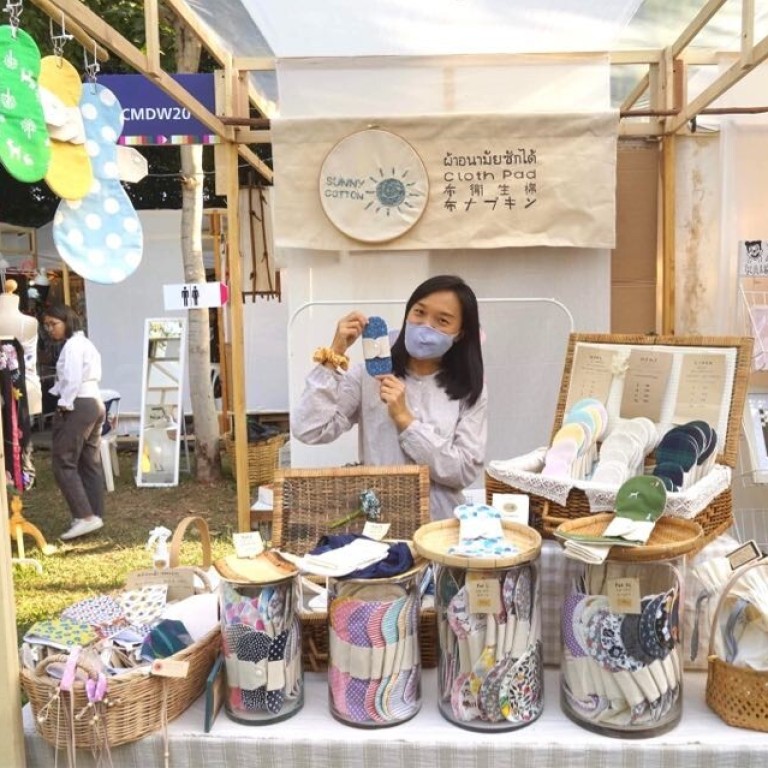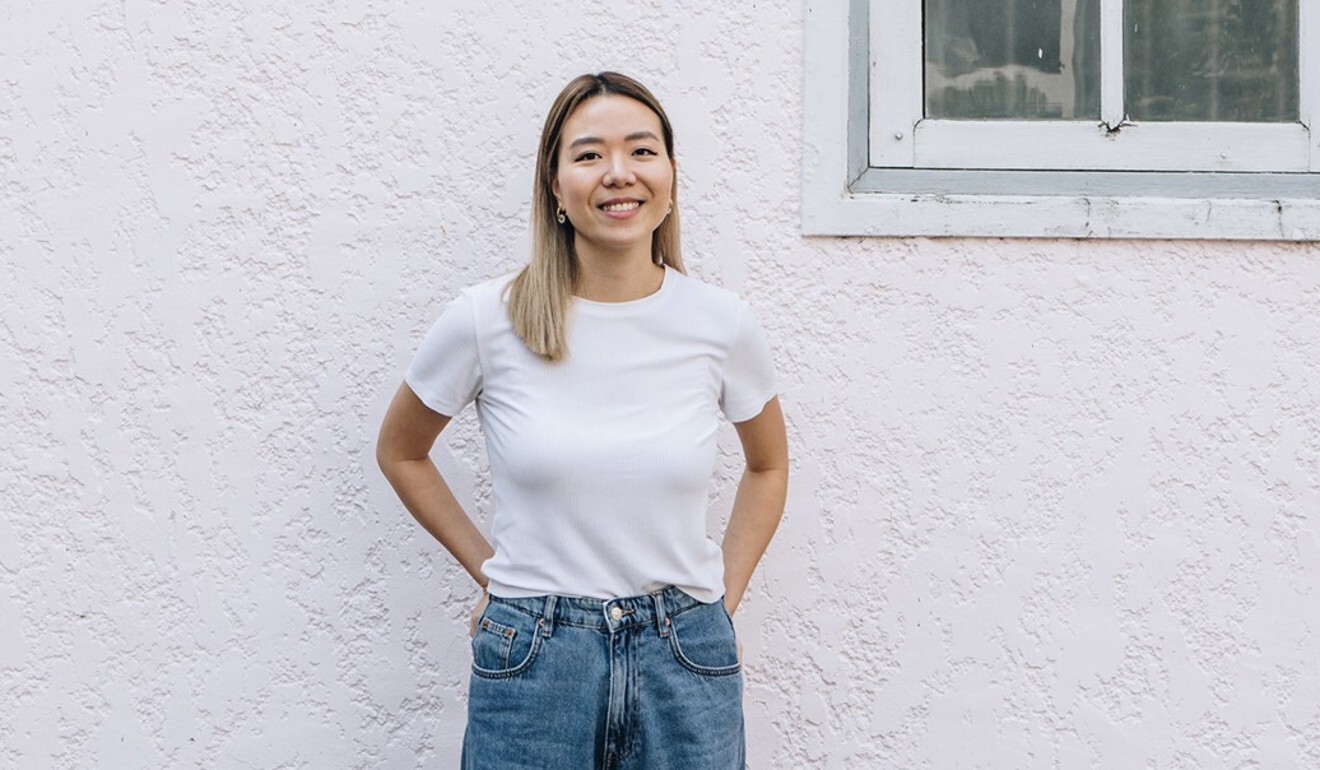
In Thailand, women entrepreneurs break menstrual taboos in bid to end period poverty
- From reusable cloth pads to menstrual cups, a new wave of more eco-friendly feminine hygiene products is being introduced to Thailand
- The women behind the brands want to promote equality as well as sustainability – and help Thai women be less embarrassed about their bodies
A new wave of female Thai entrepreneurs are introducing more culturally sensitive and eco-friendly feminine hygiene products to the kingdom, tearing down taboos in the process. This story is part of a series on women’s issues in China and Asia to coincide with International Women’s Day.
Among them is Kesinee Jirawanidchakorn, who founded her SunnyCotton brand of reusable cloth menstrual pads in 2017 after being inspired by the products she first used while studying in the Japanese city of Kyoto.
The Thai women who fight sexual assault with their fists
She described the first time she wore the cloth pads as a “spiritual experience” that she felt brought her closer to her ancestors “who relied on pieces of cloth during their periods a long time ago”.
But despite now having a customer base numbering “in the thousands”, Kesinee said SunnyCotton was about more than simply making profit.
“I want to address how the world is dealing with garbage,” the 38-year-old said. “I also want to provide women who are allergic to common menstrual pads with options, so they can be less dependent on big menstrual product brands whose pricing means many have no access to period hygiene, and as a result some of them feel alienated from their own body [and] their own menstruation.”
Kesinee is part of a new wave of Thai female entrepreneurs who are taking on the big-name feminine hygiene brands with products that are more culturally sensitive and environmentally friendly. Her reusable pads cost between 120-200 baht (US$3.93-6.55) each and can last for up to 10 years.
Southeast Asia’s young people see a silver lining in e-commerce amid Covid-19 job slump
SunnyCotton is also one of the few businesses in Thailand to adopt a social enterprise model, as Kesinee aims to start a discussion that will change attitudes surrounding menstrual taboos, and help alleviate “period poverty” – or the lack of access to safe, hygienic sanitary products because of financial constraints. Thailand imposes a 7 per cent value-added tax on feminine hygiene products.
“When women wash and dry their own pads, it gives them the understanding that their body and their periods are not, and should not be, considered dirty, which is a liberating attitude,” Kesinee said.
Thais really don’t know about their bodies. They have been taught that their genitals are untouchable, inviolable
Fellow entrepreneur Varangtip Satchatippavarn aims to break down barriers with her Ira Concept brand of biodegradable pads and liners, which eschew the pink packaging, floral imagery and “useless information” so often associated with other feminine hygiene products.
By opting for neutral packaging instead, the 26-year-old said she hopes to encourage men to buy pads for the women in their lives “so that they learn how to respect and regard [them] and know that menstruation concerns everyone of us”.
Her Ira Concept pads are free of the non-biodegradable polymer powders used in most commercially available sanitary pads, making them better for the environment.

Other entrepreneurs such as May Thanasrivanitchai are defying tradition by introducing menstrual cups – which collect fluid rather than soaking it up – to a country where most women “are taught in school that there’s only one type of menstrual product, which is the pad,” she said.
“Thais really don’t know about their bodies. They have been taught that their genitals are untouchable, inviolable,” said the 30-year-old. “Their understanding is if a vagina is penetrated, that person is no longer a virgin. This bars them from learning about new kinds of menstrual products and their own physique.”
Despite these limitations, May said her Happi brand of silicone menstrual cups had generated a healthy amount of interest since being launched in July, particularly among “the new generation who simply ask ‘Is there a better way to do things?’”.
“If I launched my product 10-15 years ago, it would not have been so well-received because information was not circulated so easily then as now,” she said.
May, who campaigns for better access to menstrual products in women’s prisons, rural villages and other underserved parts of Thailand, offers her customers a discount if they donate some pads to the cause.
Her Happi brand menstrual cups can last for up to 10 years and cost 1,150 baht (US$38) each – about the same as a year’s worth of sanitary pads. There is one catch, however: “I have to make sure those who use the cup have access to a proper boiling and cleaning station,” she said.











